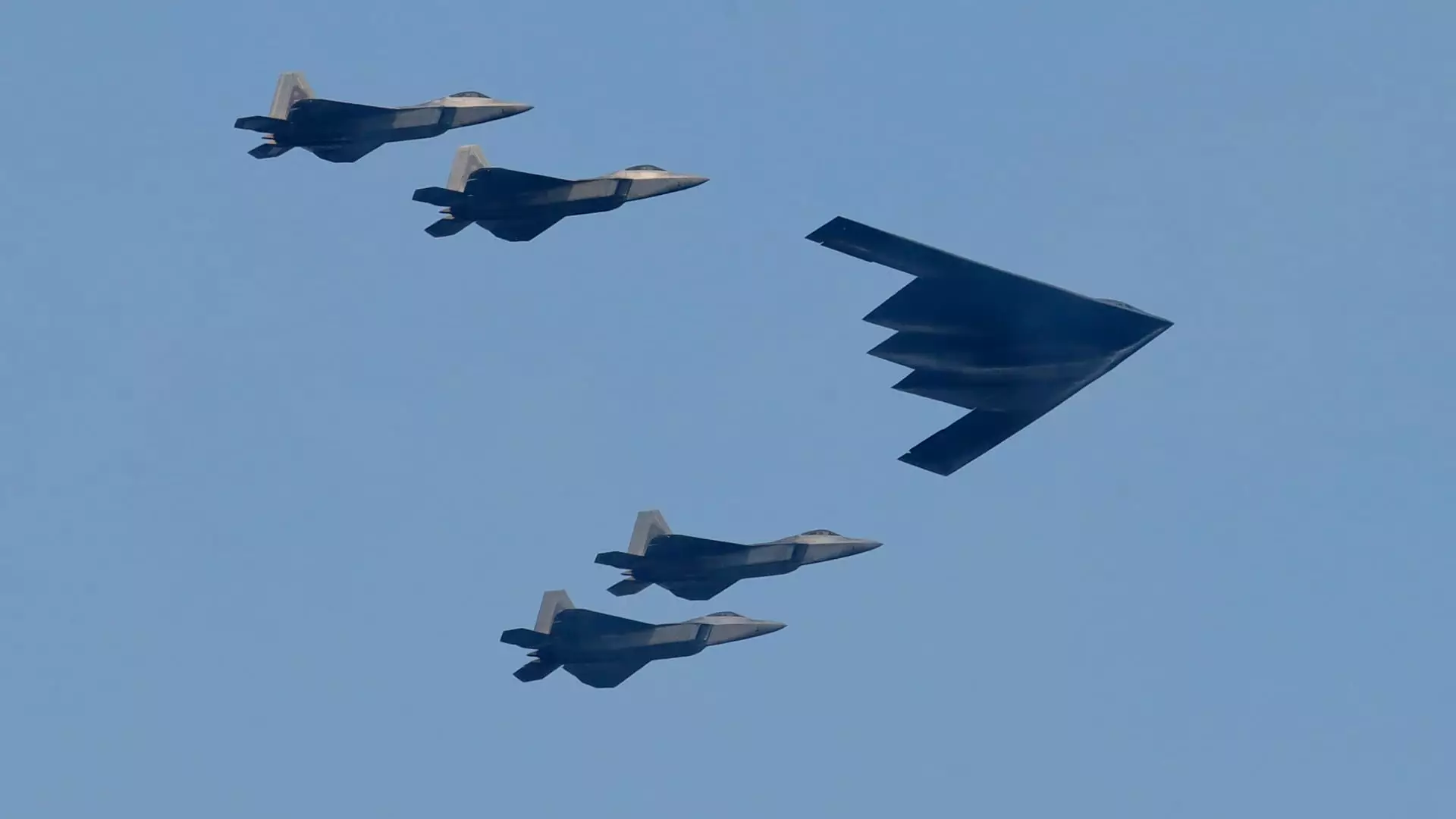In a shocking display of unilateral aggression, President Donald Trump announced a military strike on three nuclear sites in Iran, including the important Fordo facility. The President celebrated the strikes on social media as a “very successful attack,” proclaiming it a historic moment for the U.S. and its allies. Such bravado masks a deeper reality: this action has plunged the Middle East—and indeed, the world—into further instability. Rather than being lauded for strength, Trump’s decisions reveal a profound negligence for the intricacies of international relations. History has shown us that militaristic strategies often yield more harm than good; a fact the current administration seems unwilling to acknowledge.
Responses that Reflect a Broken Diplomatic Landscape
The cacophony of reactions from world leaders paints a concerning picture. On one hand, you have Israeli Prime Minister Benjamin Netanyahu, who hails Trump’s decision as a transformative act, one that purportedly prioritizes ‘peace through strength.’ Such rhetoric is misleading at best and dangerously naive at worst. The truth is, peace cannot emerge from a foundation of aggression.
Conversely, voices like United Nations Secretary-General Antonio Guterres starkly underscored the severity of the situation. He warned that the U.S. strikes represent a risky escalation and could spiral out of control—an analysis steeped in credible fears for civilian lives and broader geopolitical stability. His call for diplomacy stands in direct contrast to Trump’s triumphalism, highlighting the failure to recognize that military solutions are outdated and largely ineffective in resolving deep-rooted conflicts.
A Global Chorus of Condemnation
Beyond the U.S. borders, the tone is largely one of condemnation. Countries like Venezuela and Cuba have voiced strong opposition to the military action, labeling it as a grave violation of international law. Venezuela’s Foreign Minister issued a personal statement decrying the aggression as destabilizing, while Mexico urged a return to diplomatic dialogue. These responses resonate with a growing sentiment that military interventions often trigger unforeseen consequences that intensify rather than mitigate conflicts. The outcry is not merely a response to the military actions in Iran; it exposes the ideological fractures in global politics today.
What stands out in this political climate is the realization that the rhetoric of strength fails to address the stark realities on the ground. While nations like Mexico call for de-escalation and dialogue, Trumps’ actions seem rooted in bravado, dismissing the nuanced understanding required for fostering peace in the Middle East.
The Ethical Implications of Military Force
From an ethical standpoint, Trump’s decisions exemplify a grave disregard for the principle of proportionality in military action. The bombings were not just attacks on physical structures but represent an affront to the safety and rights of civilians caught in the crossfire of international conflicts. The ideals of sovereignty and peaceful coexistence are trampled upon by actions that amplify chaos.
The assertion that military might is synonymous with national interest overlooks the reality that the United States’ reputation is tarnished in much of the world. Countries that once viewed America as a bastion of democracy and peace are now questioning its commitment to these ideals. When military action is viewed as the first resort rather than a last recourse, it undermines the very fabric of global diplomacy.
Looking Forward: A Call for Rationality
As world leaders gather to take stock of the fallout from Trump’s aggressive actions, a pivotal moment lies ahead. The stakes are perilously high—never before has there been a more crucial time for voices advocating for rational, diplomatic solutions to rise above the din of war drums. The path forward must involve collaboration and dialogue, not the bluster of militaristic bravado.
One cannot help but ponder the long-term implications of decisions made in haste. Are we willing to accept a future rife with uncertainty, one that is littered with the consequences of impulsive military action? The call for peace, once a discussion grounded in idealism, now must assume a sense of urgency. The world deserves leadership that seeks the way of diplomacy over dominance. This pivotal challenge lies ahead for all global leaders, including those in the United States.


Leave a Reply